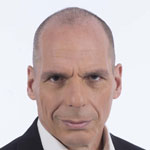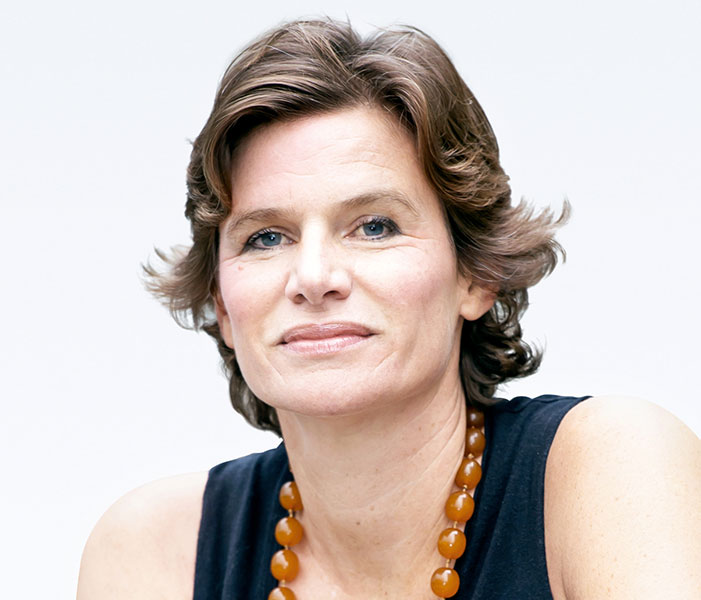
Oct 30 , 2021
By Yanis Varoufakis
As the coronavirus pandemic recedes in the advanced economies, their central banks increasingly resemble the proverbial ass who, equally hungry and thirsty, succumbs to both hunger and thirst because it could not choose between hay and water. Torn between inflationary jitters and fear of deflation, policymakers are taking a potentially costly wait-and-see approach. Only a progressive rethink of their tools and aims can help them play a socially useful post-pandemic role.
Central bankers once had a single policy lever: interest rates. Push down to revitalise a flagging economy; push up to rein in inflation (often at the expense of triggering a recession). Timing these moves, and deciding by how much to move the lever, was never easy, but at least there was only one move to make: push the lever up or down. Today, central bankers’ work is twice as complicated, because, since 2009, they have had two levers to manipulate.
Following the 2008 global financial crisis, a second lever became necessary, because the original one got jammed. Even though it had been pushed down as far as possible, driving interest rates to zero and often forcing them into negative territory, the economy continued to stagnate. Taking a page from the Bank of Japan, major central banks (led by the US Federal Reserve and the Bank of England) created a second lever, known as quantitative easing (QE). Pushing it up created money to purchase paper assets from commercial banks in the hope that the banks would inject the new money directly into the real economy. If inflation appeared, all they need do was push down on the lever and taper the asset purchases.
That was the theory. Now that inflation is in the air, central banks are nervous.
Should they tighten the policy?
If they do not, they can expect the ignominy suffered by their 1970s predecessors, who allowed inflation to become embedded in the price-wage dynamic. But if they follow their instincts and shift their two levers, tapering quantitative easing and modestly rising interest rates, they run the risk of triggering two crises at once: A jobs bonfire, as increasing interest rates reduce aggregate demand and dampen investment, and a financial crash, as markets and corporations, addicted to free money and over-extended, panic at the prospect of withdrawal. The 2013 “taper tantrum,” which occurred after the Fed merely suggested that it would rein in quantitative easing, would pale in comparison.
Central banks are terrified of this scenario because it would render both their levers useless. Though interest rates would have risen, there would still be little room to reduce them. And politically prohibitive amounts of quantitative easing would be necessary to reflate submerged financial markets. Policymakers sit on their hands, emulating the hapless ass who could not work out which of its two needs was weightier.
But, by presupposing that the two levers must be moved sequentially and in tandem, central banks’ conundrum assumes a past that need not be repeated. Historically, sure, the second lever, quantitative easing, was invented only after the first, interest rates, had stopped working.
But why should we assume that with inflation rising again, the sequence must now be reversed by eliminating quantitative easing first and then raising interest rates? Why can the two levers not be moved simultaneously and in the same direction, implying a two-prong monetary policy that hikes interest rates and quantitative easing (albeit in a different form)?
Interest rates should indeed be raised. Lest we forget, even in times of zero official interest rates, the bottom half of the income distribution are ineligible for cheap credit and end up borrowing at usurious rates through payday loans, credit cards, and unsecured private loans. It is only the rich that benefit from ultra-low interest rates. As for governments, while low official interest rates allow them to roll over their debt cheaply, their fiscal constraints seem impossible to loosen, so much so that public investment is constantly lacking. For these two reasons, 13 years of ultra-low interest rates have contributed to massive inequality.
This rising inequality has enlarged the savings glut, as the ultra-rich find it hard to spend their mountainous stash. Because burgeoning savings represent the supply of money, whereas puny investments represent the demand for it, the result is downward pressure on the price of money, which keeps interest rates pinned to their lower zero bound. Central banks must, therefore, muster the courage to raise interest rates in order to break this vicious cycle of unbearable inequality and unnecessary stagnation.
Of course, central banks fear that hiking interest rates will render governments bankrupt and cause a serious recession. That is why the increase in interest rates should be supported by two crucial policy moves.
First, because a serious restructuring of both public and private debt is unavoidable, central banks should stop trying to avoid it. Keeping interest rates below zero to extend into the future the bankruptcy of insolvent entities (like the Greek and Italian states and a large number of zombie firms), as the European Central Bank and the Fed are currently doing, is a fool’s wager. Instead, let us restructure unpayable debts and increase interest rates to prevent the creation of more unpayable debts.
Second, instead of ending quantitative easing, the money it produces should be diverted away from commercial banks and their corporate clients (which have spent most of the money on share buybacks). This money should fund a basic income and the green transition (via public investment banks like the World Bank and the European Investment Bank). And this form of quantitative easing will not prove inflationary if the basic income of the upper-middle class and above is taxed more heavily, and if the green investment begins to produce the green energy and goods that humanity needs.
Central banks are not constrained to choose between paralysis and contraction. A progressive monetary policy would lift interest rates while investing the fruit of the money tree in climate action and reducing inequality. If it helps to sell the policy, call it “sustainable monetary tightening.”
PUBLISHED ON
Oct 30,2021 [ VOL
22 , NO
1122]


Sunday with Eden | Dec 19,2018

Viewpoints | Aug 25,2024

Fortune News | Aug 21,2023

Radar | Mar 28,2020

Viewpoints | Jul 26,2025

Commentaries | Aug 30,2025


Viewpoints | Jun 15,2024

Exclusive Interviews | Oct 30,2022

Fortune News | Jun 29,2025

Photo Gallery | 180474 Views | May 06,2019

Photo Gallery | 170672 Views | Apr 26,2019

Photo Gallery | 161731 Views | Oct 06,2021

My Opinion | 137287 Views | Aug 14,2021

Dec 22 , 2024 . By TIZITA SHEWAFERAW
Charged with transforming colossal state-owned enterprises into modern and competitiv...

Aug 18 , 2024 . By AKSAH ITALO
Although predictable Yonas Zerihun's job in the ride-hailing service is not immune to...

Jul 28 , 2024 . By TIZITA SHEWAFERAW
Unhabitual, perhaps too many, Samuel Gebreyohannes, 38, used to occasionally enjoy a couple of beers at breakfast. However, he recently swit...

Jul 13 , 2024 . By AKSAH ITALO
Investors who rely on tractors, trucks, and field vehicles for commuting, transporting commodities, and f...

Nov 1 , 2025
The National Bank of Ethiopia (NBE) issued a statement two weeks ago that appeared to...

Oct 25 , 2025
The regulatory machinery is on overdrive. In only two years, no fewer than 35 new pro...

Oct 18 , 2025
The political establishment, notably the ruling party and its top brass, has become p...

Oct 11 , 2025
Ladislas Farago, a roving Associated Press (AP) correspondent, arrived in Ethiopia in...

Nov 2 , 2025
The National Bank of Ethiopia (NBE) has scrapped the credit-growth ceiling that had s...

Nov 2 , 2025 . By SURAFEL MULUGETA
The burgeoning data mining industry is struggling with mounting concerns following th...

Nov 2 , 2025 . By YITBAREK GETACHEW
Berhan Bank has chosen a different route in its pursuit of a new headquarters, opting for a transitional building instea...

Nov 2 , 2025 . By BEZAWIT HULUAGER
Nib International Bank S.C. has found itself at the epicentre of a severe governance...